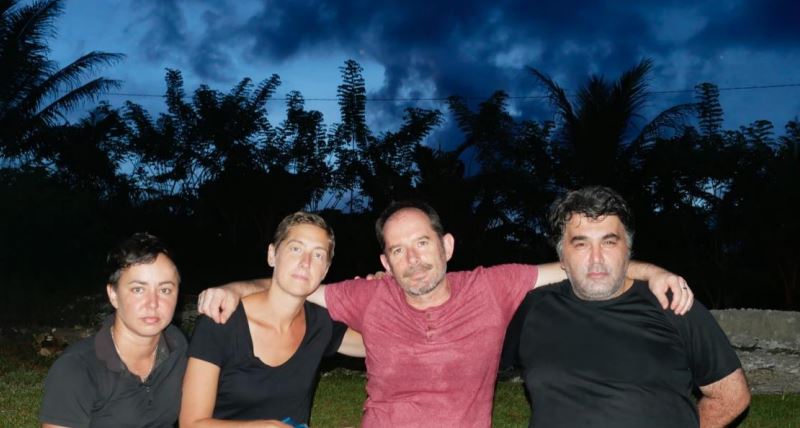No Australian could support the indefinite offshore detention of asylum seekers and refugees after meeting these people in person, according to a Yarraville photographer recently returned from Manus Island.
Martin Wurt joined members of the Footscray-based Asylum Seeker Resource Centre on a recent visit to the island in the wake of the PNG government’s permanent closure of the Manus Regional Processing Centre and attempts to force more than 400 men to leave the centre and move into alternative, unfinished facilities.
He helped the ASRC collect 40 recorded interviews with certified refugees and people seeking asylum, witnessing a “humanitarian and medical crisis” first-hand.
Despite spending years working as a photographer and videographer for Oxfam, Mr Wurt was unprepared for the scenes and stories they confronted.
“People don’t realise that there are also about 120 refugees and asylum seekers brought from Manus Island and Naura to Port Moresby for medical care,” he said.
“They have these horrible, horrendous issues they are in very hot and very humid conditions and suffering skin conditions, kidney stones and urinary infections from not getting enough water. Living almost five years in a canvas tent.”

Mr Wurt said depression is another major issue, compounded by the unending uncertainty about their fate.
“They don’t get told what is happening next. The men describe it as a new form of torture.
To actually go there and sit down with these people and hear their stories, it was just heartbreaking.”
Mr Wurt hopes to discuss the experience with Gellibrand MP Tim Watts, a supporter of offshore detention and processing.
The visit comes as Australian doctors have jointly written to Australia’s immigration minister and health ministers emphasising their rising concern for the health and wellbeing of the asylum seekers.
The Royal Australian College of General Practitioners (RACGP), the Royal Australasian College of Physicians (RACP) and the Royal Australian and New Zealand College of Psychiatrists (RANZCP) are calling for more to be done to ensure they have access to the healthcare they need.
RACGP President Dr Bastian Seidel said on Tuesday they are “extremely worried about the health and safety of these vulnerable people”.
“As medical practitioners, we cannot sit back knowing the standard of care received by those seeking asylum in Australia is anything but acceptable.
“This is not about politics. This is about the health and safety of a group of very helpless people.”

The ASRC’s report on the visit makes similar calls for help, claiming the policy of offshore processing and indefinite mandatory detention has had a direct and catastrophic impact on the physical, mental and emotional health of refugees and people seeking asylum.
Advocacy director Jane Favero said the visit to PNG was an experience she will never forget.
“I will also never forget the impressive strength and resolve of the men despite everything they have been through. To me, they are human rights heroes.
ASRC founder Kon Karapinagiotidis said the men had responded to their visit with grace, generosity and kindness.
“Our country would be lucky to call these men our own.”
Mr Wurt echoed the sentiment, noting the men rustled up what little food they could to share with the team on its visit to the abandoned centre.
“These people are just desperate to get on with their lives.”










